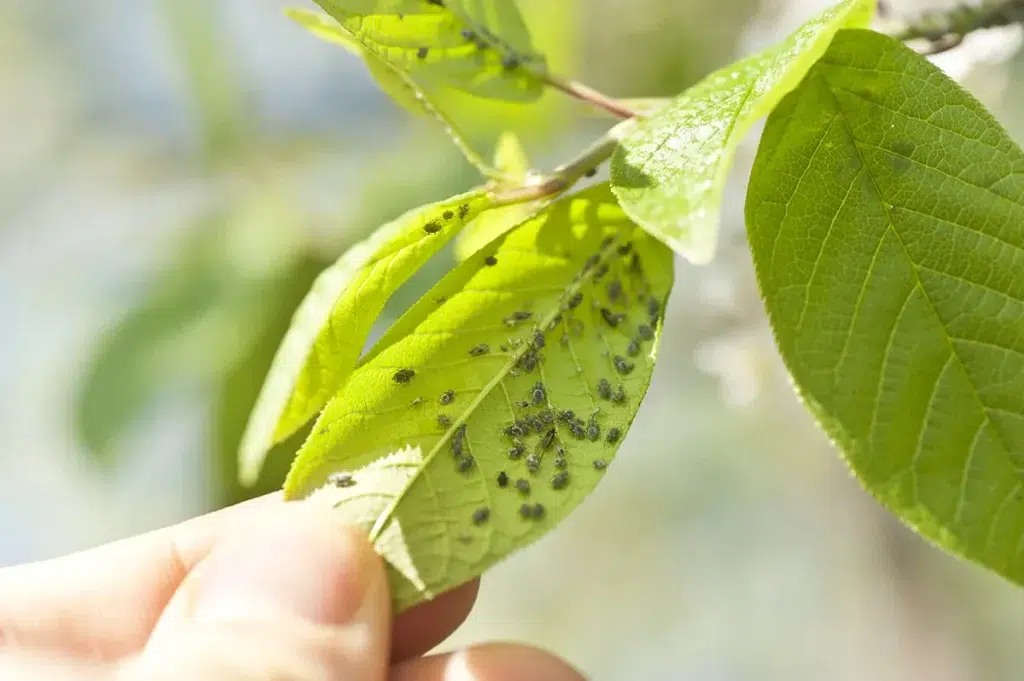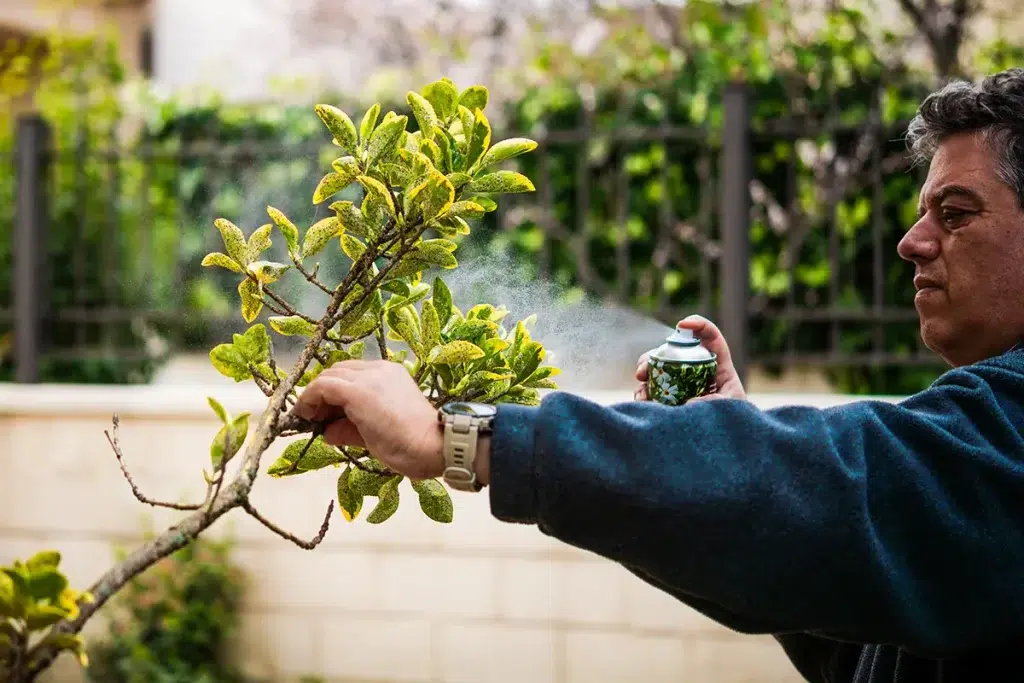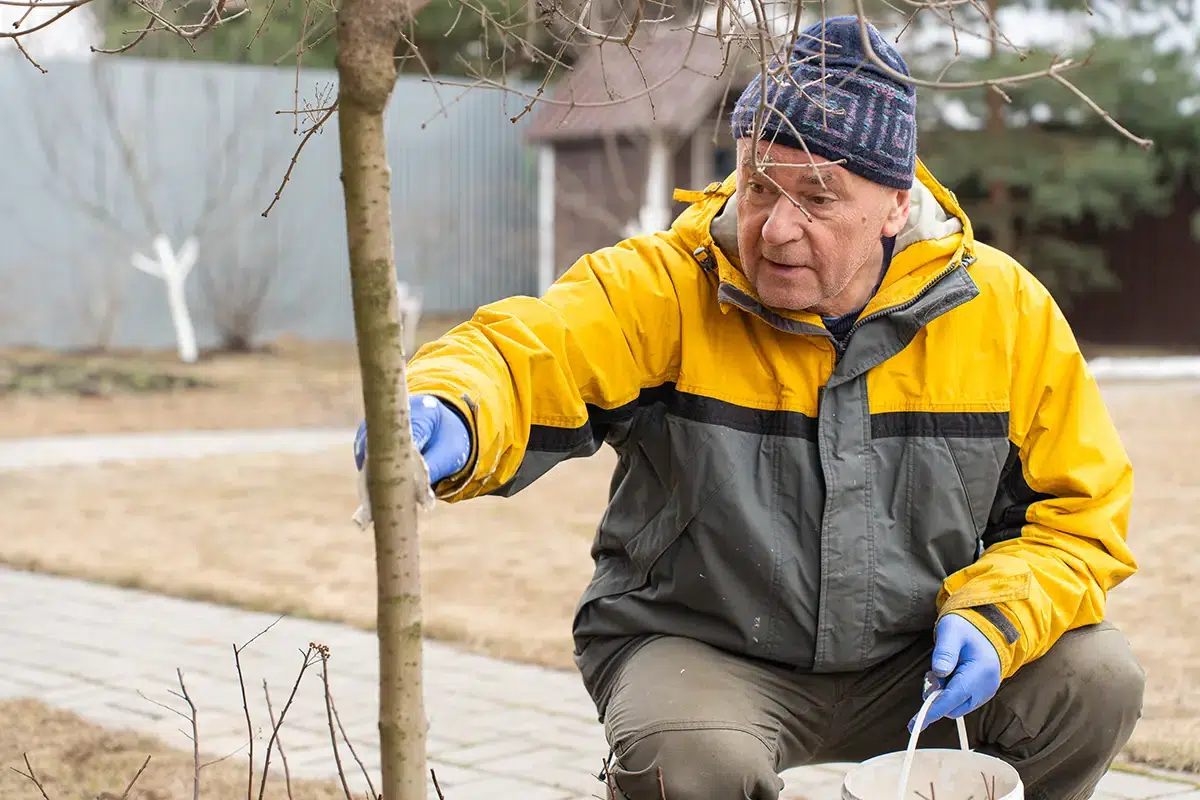When trees go dormant in winter, it’s easy to assume that pests disappear too. However, winter pest problems persist as common pests seek shelter in bark crevices, buds, soil, and even indoors when colder weather sets in.
Many destructive insects and diseases simply overwinter in hiding, waiting for warmer temperatures to re-emerge and cause damage. That’s why seasonal pest control—specifically during the dormant months—is an essential step in any long-term tree health care plan.
At Horhut Tree Experts, we focus on preventive, science-based pest management that disrupts pest life cycles before they can threaten your landscape in spring.
👉 Call 412-855-2703 today to schedule a dormant season evaluation and protect your trees before spring pests return.
What Is Dormant Season Pest Control?
Dormant season pest control involves monitoring and treating trees during late fall and winter, when insects are in overwintering stages and trees are not actively growing.
Regular inspections and early detection are key, allowing issues to be addressed before they escalate. The main goals are to:
- Suppress pest populations before spring hatch-outs
- Target overwintering eggs, larvae, and fungal spores
- Apply treatments when beneficial insects and pollinators are less active
- Implement preventive measures to stop infestations before they start
This proactive approach reduces the need for reactive sprays later—making it a safer, more environmentally responsible pest management strategy.
Common Tree Pests That Overwinter in Western Pennsylvania
Many pests affecting trees in the Greater Pittsburgh area use winter to bide their time. Some of the most common include:
- Scale Insects – Euonymus scale and oystershell scale overwinter on twigs and branches.
- Mites – Spider mites and eriophyid mites overwinter as eggs or adult females in bark crevices.
- Aphids – Some species lay overwintering eggs on host trees.
- Leafhoppers & Caterpillars – Often overwinter as eggs or pupae hidden on branches.
- Fungal Pathogens – Spores of anthracnose, powdery mildew, and apple scab overwinter on fallen leaves and twigs.
👉 Early intervention reduces spring infestations and helps maintain healthier, longer-living trees.

Breeding Season and Pest Activity
Pest populations surge during breeding season when warmer temperatures and humidity create ideal reproduction conditions.
For example:
- Mosquitoes thrive in summer, breeding in standing water.
- Stink bugs & boxelder bugs invade homes in fall, seeking warmth.
By recognizing these seasonal patterns, arborists and pest control experts can time treatments effectively—breaking cycles before populations grow out of control.
👉 Tip for homeowners: Seal entry points around your home and eliminate standing water to prevent pest breeding and indoor invasions.
The Role of Dormant Oil Applications
One of the most effective dormant-season tools is horticultural oil (dormant oil). This ultra-refined spray coats bark and twigs to:
- Suffocate overwintering insects and eggs
- Disrupt pest life cycles before they reactivate
- Reduce pesticide use later in the season
Dormant oils work best in late winter or early spring, when temps are above freezing but before bud break.
At Horhut Tree Experts, every application is guided by an ISA Certified Arborist, ensuring treatment is safe, effective, and compliant with ANSI A300 Integrated Pest Management (IPM) standards.

Why Winter Pest Control Matters for Tree Health
Skipping dormant season pest control can lead to:
- Heavy spring infestations
- Higher pesticide use later
- Stress on young or vulnerable trees
- Greater risk of fungal diseases
- Structural damage to trees
- Increased property health risks from unchecked pests
By acting in the off-season, you reduce risks and support resilient, pest-resistant trees. This is especially crucial for mature shade trees, ornamentals, and valuable specimens.
👉 Protect your landscape investment with winter pest management from Horhut Tree Experts.
Pest Control Tips and Best Practices
Effective pest control starts with consistent inspections and preventive practices. Homeowners and property managers can help by:
- Inspecting trees regularly for signs of overwintering pests
- Eliminating standing water and debris piles where pests thrive
- Sealing home entry points to reduce indoor invasions
- Scheduling professional tree evaluations before spring
Our Proactive Pest Management Approach
At Horhut Tree Experts, we use a tailored, evidence-based strategy rather than “spray and pray” tactics. Our approach includes:
Tree Health Assessment
Each tree’s structure, species, and pest history are examined.
Pest & Site Monitoring
We look for overwintering pests, egg masses, or fungal spores.
Targeted Treatments
Dormant oils or low-impact solutions are applied with precise timing.
Integrated Strategy
Pest control is coordinated with pruning, fertilization, and cultural practices for maximum benefit.
All treatments follow ANSI Z133 safety protocols—your trees and property are in expert hands.
Get Ahead of Spring Problems—Now
By the time pests are visible in spring, much of the damage is already done. The dormant season is your chance to:
- Break pest life cycles early
- Protect beneficial insects
- Ensure healthier trees for the growing season
👉 Don’t wait—call Horhut Tree Experts at 412-855-2703 or request a dormant season evaluation online.
Now is the time to invest in proactive, environmentally responsible pest control—giving your trees a head start for spring.

